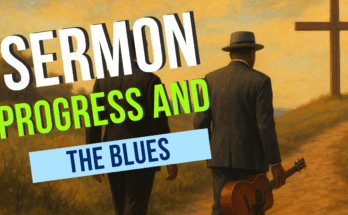As an Amazon Associate I earn from qualifying purchases.
Ben Bacon asks an interesting question in the comment section of the post “What’s Missing from Your Preaching.” He writes:
Great observations, Sherman. Our social structures and customs are not the same as when the biblical writers first penned the Bible. In a way, all preaching engages the culture because of the unique nature of the scriptures themselves. What principles would you encourage for engaging/critiquing your own culture in a sermon? What place does it hold in the sermon itself?
The rest of this post is the answer:
First Recognize Society’s Limitations
Thanks for your comment. I think the biggest thing that we can do is recognize that neither our current society, nor our glorified version of the “good old days” are a good representation of God’s ideal. Our structures and customs are not necessarily bad, but neither are they necessarily good.
Too often Americans simply assume that our version of capitalism is God’s goal for the world. When you make that assumption you remove your ability to critique our own economic system that seems to promote the greedy at the expense of the masses. When you make that assumption your sermons will more likely support the status quo by an overemphasis on “self reliance” or grabbing and getting yours” without an adequate critique of the whole system. Does unbridled capitalism better us for the kingdom? If not, then it is open to critique…
Principles for Critiquing
Now you ask two important questions. What principles would you encourage for engaging and critiquing the culture. I answer, What is God’s ideal? We may not fully understand it, but you and I have our ideas of what it is. If your version of God’s ideal is that all will be taken care of, then you must use that to critique your culture. Why do some on the right use abortion and homosexuality to critique the culture, but then often refuse to turn critique an economic system that supports the concentration of wealth in a few hands? If you teach me not to be greedy, then you should critique culture by the same lens. If you teach me to not lie, then you should use that same lens to look at cultures that ignore lies or even promote them. What principles should you use? With few exceptions the same principles you use when you are telling your members to live ethical lives.
In addition, your critique should not ignore that which is good in the culture. Some preachers are experts at what is bad, but can never see the good. I think we either err on the side of making the “good ole days” God’s ideal, or in stating that there is nothing good at all in the culture, however a full critique recognizes both the good and the bad
Should it be in the Sermon?
Your next very insightful question is what place does it serve in the sermon itself? That is an interesting question. Right now, I think that the place it serves is one in the background. It is a part of the structure that holds up your sermon. It is like a skeletal support to your sermon. That way, it may show up in your illustrations. It may show up in your sub points. It may even
show up in the way you talk in and out of the pulpit.
I think the strongest critiques of the culture will come with hints here and there. I do not necessarily think that you should have a sermon titled: “Why American Culture Is Bad!” perhaps God has called you to preach that sermon, but I would suggest that you just imbibe a critique of the culture that comes from a love for the Coming Kingdom of God. .
So when you are preaching on Jesus being crucified you see how Jesus was ramrodded by a political system and a weak leader. As you look at that, you may see correspondence to the number of people who have been jailed wrongly. Perhaps you throw in an illustration, perhaps you don’t, but just having this mindset will come through, and allow your people to critique the culture they live in beyond the knee-jerk simplistic arguments that begin and end at whether abortion or homosexuality is wrong…
Amazon and the Amazon logo are trademarks of Amazon.com, Inc, or its affiliates.





